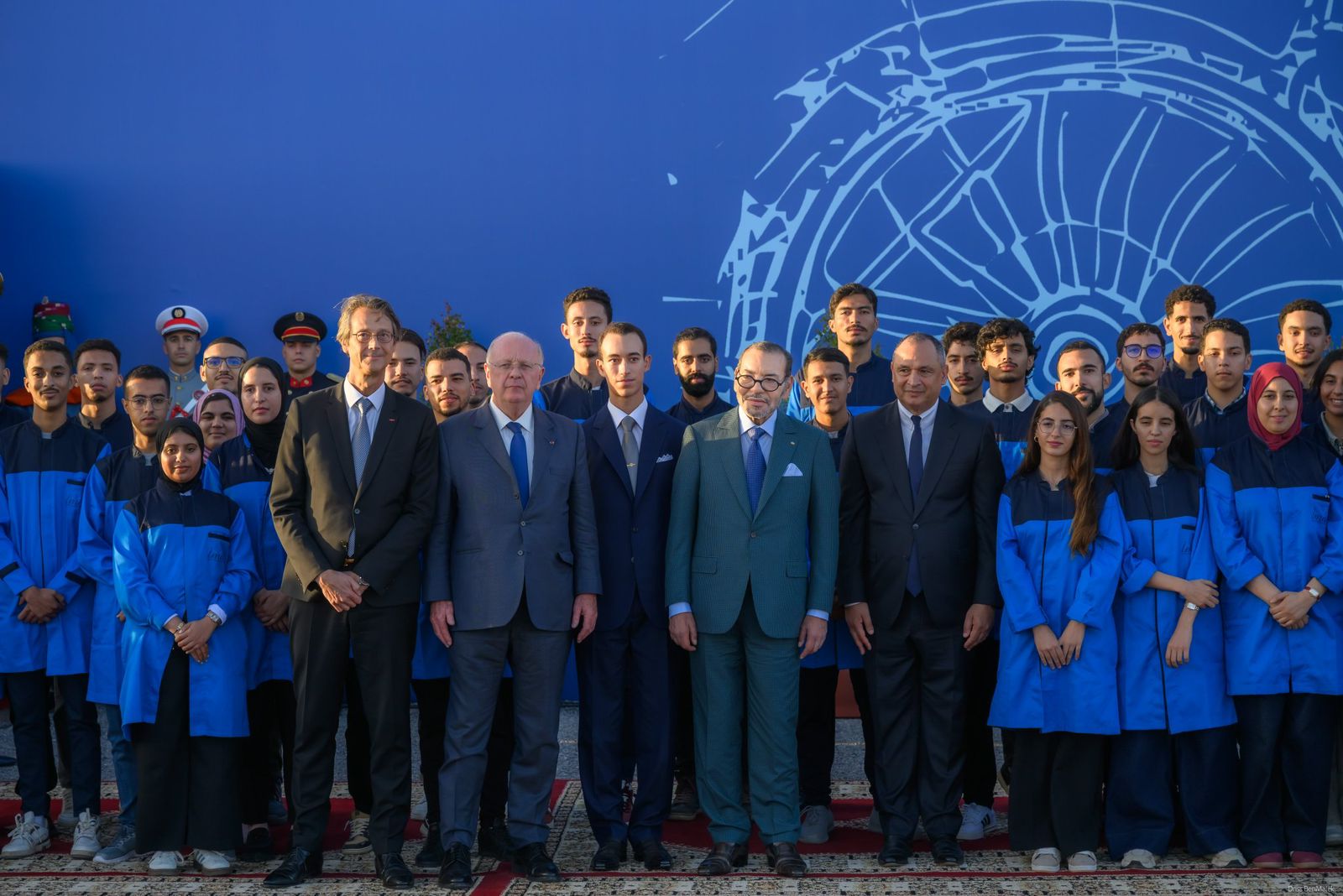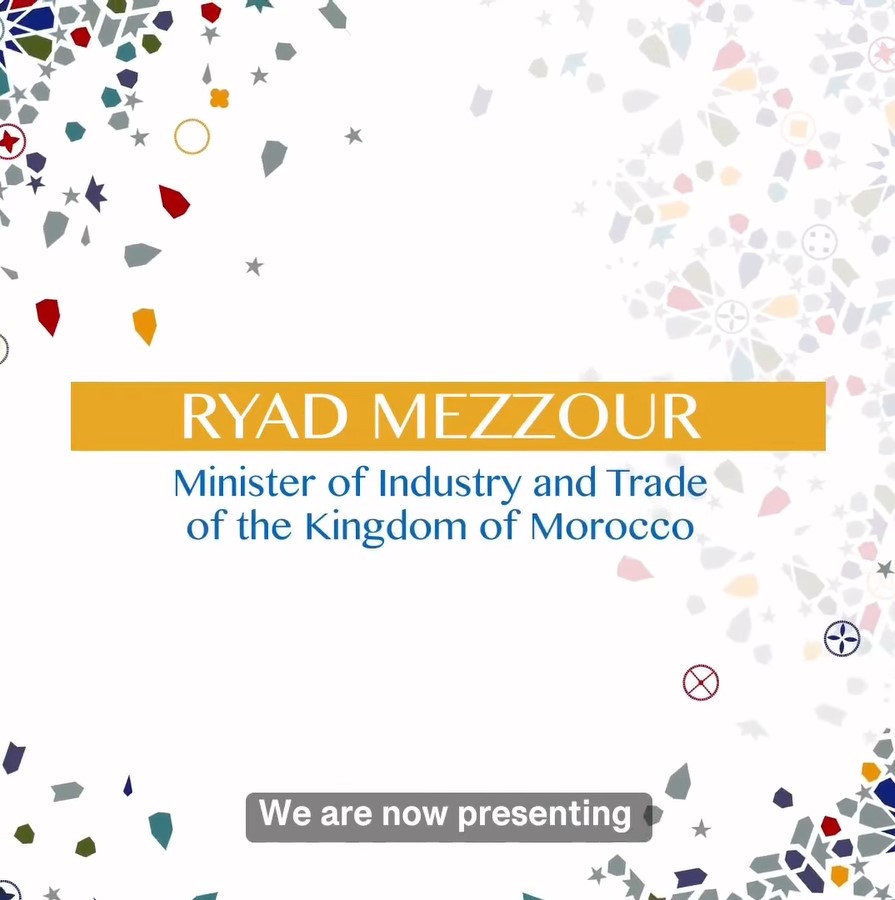Ban of plastic bags: positive results six months after the law entered into force

The Minister of Industry, Trade, Investment and the Digital Economy, Moulay Hafid Elalamy, held a press conference on 16 January 2017 to present the assessment of the implementation of law n°77-15, which came into force on 01 July 2016, banning the manufacturing, import, export, commercialisation and use of plastic bags.
With the adoption of this law, Morocco puts an end to plastic bags and fully acknowledges the inherent environmental challenges. “This is a national project that rallies all of us as the issue deserves our collective determination”, stressed Mr Elalamy adding that “since the law entered into force, the use of plastic bags has reduced considerably: it has been virtually eradicated in modern commerce whilst the use of alternative products has increased remarkably amongst small traders”.
A comprehensive and participatory strategy was deployed to accompany the implementation of the law. An interdepartmental committee bringing together the Ministry of the Interior, the Ministry of Justice and Liberties, the Department of industry, the Ministry in charge of the Environment and Customs and Excise Administration, closely monitors the deployed measures.
From a regulatory perspective, the implemented judicial arsenal was strengthened in order to increase the effectiveness of the control system. Regulatory decrees were published to specify the technical characteristics of permitted bags (rubbish bags and freezer bags) and to prevent their misappropriation. The law henceforth also covers polythene, the raw material used in the production of plastic bags, with an import-licensing scheme to guarantee traceability and prevent misappropriation. Further regulations are being drafted to set the business practicalities of industrial sacks between maker and user with the purpose of preventing their misappropriation and sale on the open market.
The remarkable decline in the use of plastic bags is due to effective control operations at the local level, in the production units, at the points of sale and at the borders. Regarding the control of production, 1,536 operations have been carried out and 20 police reports were transmitted to Royal prosecutors. As for market control, 9,077 offences were raised at the 261,855 controlled outlets and 1,076 police reports were forwarded to Royal prosecutors. With regard to border control, 19 tonnes of plastic bags were seized. In total, 139 court rulings were pronounced with fines totalling 2.76 million dirhams.
These efforts have allowed the eradication of formal production, a near-total removal of plastic bags for modern trade and a significant decline in their use for street and proximity trading, as they predominantly use alternative solutions.
In this regard, it should be noted that the entry into force of the law has promoted the emergence of new activities aiming to address the growing needs of the market for alternative solutions. The annual production capacity of substitute products is estimated at 4.6 billion paper bags, 100 million woven bags and 120 million non-woven bags.
Furthermore, and in order to support of the operators affected by the law, the Department of Industry has dedicated a 200 million-dirham fund to the financing and assistance for conversion. Today, 72 companies have responded to the call for expressions of interest launched in May 2016 and are thus eligible to benefit from the support of the Fund. So far, only 16 of them have submitted their files and obtained governmental support. These companies employ 475 people and will create 509 jobs.
It should be noted that the government support via the fund is aimed at companies achieving over 30% of their turnover through the production of plastic bags that are now banned by law, companies producing bags that are not banned but wishing to ensure compliance of their production units with the new required norms and companies whose production of plastic bags represents less than 30% of turnover. Such companies will benefit from the support of Maroc PME programs.
In addition to the support fund, conversion is also backed through an expert report to design investment programmes, an awareness-raising scheme to encourage banks to provide preferential rates and conditions to operators and to encourage CNSS to activate the unemployment compensation process.
The intensive operations for collection and disposal of plastic bags, led by the Ministry of Interior, resulted in the collection of over 6,800 tonnes of bags that were incinerated in cement kilns in collaboration with the Professional Association of Cement Plants.
Thanks to a clear collective commitment, the Kingdom which once counted amongst the largest consumers of plastic bags worldwide, has been able to substantially reduce their use and is now well on its way towards their total elimination.
Share this article
read also

Communiqué de presse
Nouaceur: HM the King Chairs Presentation Ceremony, Launch of Construction Work of Safran Group’s 'Aircraft Engines' Industrial Complex
Nouaceur - His Majesty King Mohammed VI, may God assist Him, accompanied by HRH Crown Prince M...

Foreign trade: Announcement issued at the ministerial meeting between the Arab Republic of Egypt and the Kingdom of Morocco
As part of the strengthening of fraternal cooperation relations and the distinguished economic...

Day 3 of the Marrakech Air Show: Human capital and innovation in the spotlight
The 7th edition of the Marrakech Air Show, held under the High Patronage of His Majesty King M...




